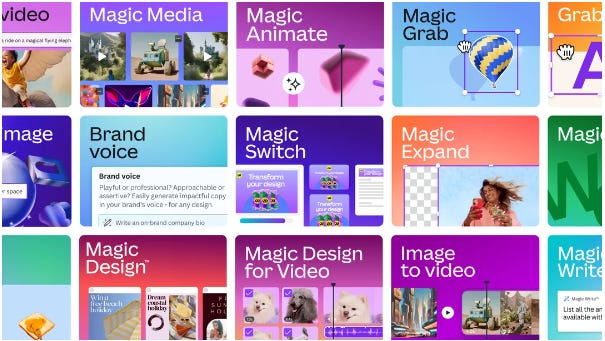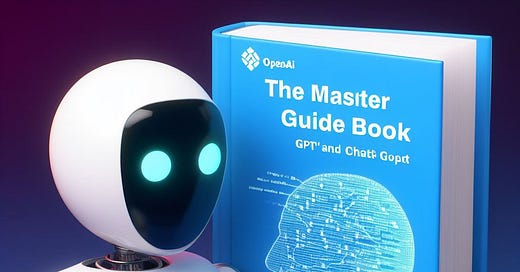
The Rise of AI Startups
The AI Revolution Is Here - Startups Raise Millions, US and China Race for Supremacy, Big Tech Bets Big, Creative AI Emerges, But Ethics Questions Loom
The Rise of AI Startups
A new wave of AI startups are raising huge amounts of funding and pushing the boundaries of artificial intelligence. Companies like Anthropic, Cohere, and Anthropic are developing revolutionary natural language processing models designed to understand and generate human language.
Anthropic’s AI assistant Claude can hold conversations, answer questions, and summarize content. The company raised $300 million in 2021. Cohere has created a large language model called Galactica that can explain concepts, write code, and answer multistep questions. Cohere raised $125 million in 2022.
These startups are competing directly with AI giants like Google, Microsoft, and OpenAI. Their goal is to make AI more beneficial, safe and controllable. With names like Claude and Galactica, they aim to make AI seem friendly and approachable.
The AI Arms Race Between the US and China
The US and China are locked in an escalating competition to develop advanced AI capabilities. Both countries see AI supremacy as critical to economic competitiveness and national security.
China aims to be the world leader in AI by 2030. The US is tightening export controls on AI chips and algorithms to slow China’s progress. But China is investing billions in AI research and development.
The Pentagon created the Joint AI Center to accelerate adoption of AI for military purposes. DARPA’s AI Next campaign is developing AI tools for defense. China’s military is funding initiatives like Project Minerva to enhance intelligence analysis and decision-making.
As AI becomes more powerful, experts warn it could shift the global balance of power. There are fears it could lead to lethal autonomous weapons like AI-controlled drones and cyberwarfare tools.
Big Tech Bets on AI
The world’s biggest tech companies including Google, Microsoft, Meta and Amazon are investing heavily in AI to improve their products and services.
Google added AI features to its search engine, introduced AI-generated images and videos, and launched conversational AI services like Bard. Microsoft added GPT-3 capabilities to its Teams chat. Meta is exploring AI personas that can form relationships with humans.
Amazon uses AI to recommend products, moderate content and crunch supply chain data. It acquired autonomous vehicle startup Zoox for $1.3 billion. Apple added AI capabilities to Siri and its iPhone camera.
These companies are leveraging AI to gather data, attract eyeballs and deepen user engagement. AI can help generate content, moderate discussions, and provide predictive analytics.
AI Gets Creative
AI is making inroads into creative fields like media and entertainment. New generative AI models can create original music, art, videos, images and stories with minimal human input.
AI artist Refik Anadol collaborates with machines to generate dynamic art installations. Startup Boomy claims its AI can compose emotive instrumental music. Anthropic built an AI tool called Claude Mix that creates custom rap songs.
There are also AI-written novels, screenplays and news articles. But creators like Black Mirror’s Charlie Brooker argue AI still lacks human imagination, creativity and emotion. Others worry AI art lacks a human touch.
Ethical Challenges of AI
The rapid progress of AI is raising concerns about ethics, accountability, privacy and security. Here are some key issues:
- Deepfakes - New detection tools aim to identify AI-generated fake audio, video and images.
- Transparency - Governments want clear labeling when content is AI-created. They are developing algorithmic auditing tools.
- Bias - AI systems can perpetuate harmful bias from flawed training data. Techniques like data augmentation can help.
- Privacy - Generative AI can reveal private data. Differential privacy and federated learning help protect user data.
- Misuse - AI could empower criminals, oppressive regimes, and biological weapons development. Researchers aim for beneficial AI.
- Job loss - Intelligent automation may displace workers. But AI could also create new jobs and boost productivity. Education and training are critical.
AI Regulation and Policy
Governments are developing policies, regulations and national strategies aimed at maximizing the benefits of AI while mitigating risks.
The EU unveiled a Coordinated Plan on AI outlining regulatory proposals. It wants to position Europe as a global AI leader. The UK published a National AI Strategy focused on ethics. And the US created a National Artificial Intelligence Initiative Office within the White House.
Key policy priorities include transparency, eliminating bias, enabling data sharing, protecting intellectual property, and restricting sensitive exports like AI chips. There are also growing calls for creating a new legal status for intelligent machines.
AI Transforming Key Sectors and Industries
AI is being deployed across industries and sectors to improve efficiency, decision making and competitive advantage.
- Healthcare - AI can speed drug development, improve medical imaging, enhance diagnosis and personalized treatment.
- Manufacturing - AI optimizes production lines, predictive maintenance and supply chain logistics.
- Finance - Banks use AI for fraud detection, risk assessment, trading algorithms and financial advisory services.
- Retail - Retailers are adding AI chatbots, using visual recognition for checkout, personalizing recommendations, and optimizing pricing.
- Autonomous Vehicles - AI enables self-driving cars to interpret environments, plan routes, sense obstacles and make decisions.
- Cybersecurity - AI analyzes threats, detects intrusion, and fights malware. But it can also power cyberattacks.
- Scientific Research - AI can spot patterns in massive datasets aiding discoveries in physics, chemistry, astronomy and medicine.
The Future of Work
There are growing concerns that AI and intelligent automation will displace human employees. Studies estimate that up to 40% of jobs could be vulnerable.
But AI is also creating new types of jobs. AI specialists are in high demand, along with domain experts to train AI systems. New roles could include human-AI collaboration managers and AI ethics consultants. Education and re-training will be crucial to smooth workforce transitions.
Rather than full automation, most jobs will likely see aspects taken over by AI. This could remove drudgery and enable people to focus on higher value work. But to avoid being left behind, workers must embrace reskilling.
The full impacts of AI on the labor market remain ambiguous. But it is clearly catalyzing disruptive change. Policymakers emphasize that AI should enhance human potential, not replace it.
The Awesome Potential of AI
While AI risks exist, experts are mostly optimistic about the field’s awesome potential. AI promises to help solve humanity’s grand challenges from climate change to disease. It can take over dangerous physical tasks and expand human capabilities.
Natural language AI can bridge communication divides between cultures. AI diagnostics can spot disease earlier and save lives. Intelligent assistants can support mental health.
But we are still in the early days of AI. As algorithms grow more powerful, we must steward its development wisely. AI ethics is now recognized as vital to prevent misuse.
The accelerating pace of AI advancement will drive global transformations. But by upholding human dignity and egalitarian principles, AI can empower people, connect communities, and magnify the human experience.















